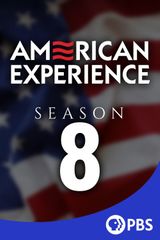
American Experience 8
1995-10-16 | Documentary | 9 episodes38 Seasons
Episode
Murder of the Century (1995)
In 1906, the murder of Stanford White, New York architect and man-about-town, by Harry K. Thaw, heir to a Pittsburgh railroad fortune, was reported "to the ends of the civilized globe;" much of the focus however was on Evelyn Nesbit, the beautiful showgirl in the center of the love triangle. A sensational murder story that had everything: money, power, class, love, rage, lust and revenge.

Edison's Miracle of Light (1995)
In 1878, Thomas Edison announced his intention to harness Niagara Falls and produce a safe, electric light system. He said he could do it in six weeks. Almost three years later, all the components -- bulbs, sockets, switches, wires, junction boxes -- were finally ready. The "Wizard of Menlo Park" may have revolutionized the world, but he was caught in a web of personal, patent and corporate battles, eventually losing control of the industry he founded.

Chicago 1968 (1995)
While America was reeling from the assassinations of Robert Kennedy and Martin Luther King and public outcry against the Vietnam War, the Democrats held their convention in Chicago. Yippie and anti-war protesters were determined to be heard; Mayor Daley was just as determined to stop them. A clash of political visions would be fought in the back rooms, on the convention floor and in the streets of Chicago.

The Orphan Trains (1995)
In the mid 19th century, thousands of children roamed the streets of New York in search of money, food and shelter. In an ambitious and controversial effort to rescue them, between 1854 and 1929 more than 100,000 of these so-called "street Arabs" were sent by train to the Midwest to begin new lives in foster families. Poignant and powerful are the memories of living "Orphan Train" riders who vividly recount their experiences.

Freedom on My Mind (1996)
In the summer of 1964, two groups converged in Mississippi: one mostly young, white and well educated from out of state; the other, African Americans who lived in the most violently segregated state. Recruits in a nonviolent army, together they fought the white political establishment to register black voters, create schools and bring national attention to the struggle. It was a summer of rage, pain and enormous danger.

Directed By
- Connie Field
Featured Crew
View Live Featured Crew Profile
Photo

